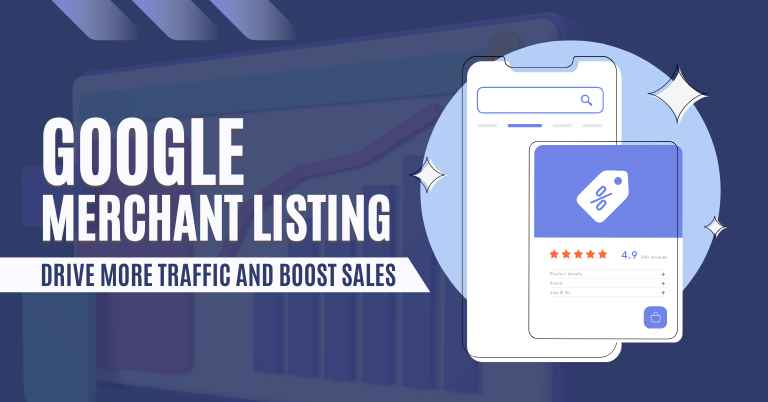When it comes to advertising online, there are many ways to attract potential customers and promote your business. One of the most effective methods is using ad extensions. Ad extensions are additional pieces of information that can be added to your ads, such as links to other pages on your website, phone numbers, or location information. By incorporating ad extensions into your advertising strategy, you can make your ads more informative, relevant, and engaging for your target audience. In this article, I’ll cover the what is the best practice for using ad extensions to improve your advertising campaigns. I’ll explain what ad extensions are and how they work, discuss the different types of ad extensions available, and provide tips and tricks for making the most of them. So, let’s dive in!
AD Extensions are like spices in cooking – use them wisely and in the right amount to enhance the flavor of your Active Directory, but too much or in the wrong way can ruin the whole dish.
RELATED TOPIC:
- How Can Google Ads Help You Advance Your Business Goals?
- How can Performance Planner Serve Your Business?
- What can the Performance Planner Recommend?
- How Does Google Ads Generate Responsive Search Ads?
- How can Ad Extensions Contribute to Increasing User Engagement?
- How do Responsive Display Ads use Automation?
Let's See the Topic Overview
Understanding Ad Extensions
Ad extensions are extra pieces of information that can be added to your ads to provide more context and value to your target audience. They can help your ads stand out from the competition, increase your visibility and click-through rate, and ultimately drive more conversions and sales.
Ad extensions are available for both search and display campaigns on platforms like Google Ads, Microsoft Advertising, and Facebook Ads. They can be used to highlight different aspects of your business, such as your location, phone number, pricing, reviews, and more.
Types of Ad Extensions
- Location Extensions: Location extensions show your business’s address, phone number, and a map marker with your ad. This type of extension is particularly useful for businesses with physical storefronts or multiple locations.
- Call Extensions: Call extensions allow users to call your business directly from your ad. This type of extension is great for businesses that rely heavily on phone calls, such as service providers or restaurants.
- Sitelink Extensions: Sitelink extensions showcase additional links to relevant pages on your website. This type of extension is perfect for businesses with a lot of website content, as it allows you to showcase specific pages or products.
- Callout Extensions: Callout extensions highlight unique selling points or promotions in your ads. This type of extension is a great way to differentiate yourself from the competition and entice users to click on your ad.
- Structured Snippet Extensions: Structured snippet extensions provide additional information about specific aspects of your business, such as product categories or services. This type of extension is ideal for businesses with a wide range of offerings.
- Price Extensions: Price extensions showcase your products or services and their prices. This type of extension is useful for businesses with a fixed pricing structure, such as hotels or car rental companies.
Why are Ad Extensions Important?
Ad extensions are important because they provide additional information and options to potential customers who are searching for products or services online. By using ad extensions, you can enhance your search ads and make them more appealing and useful to your target audience. This can increase the likelihood that users will click on your ads and ultimately lead to more conversions and sales for your business.
In addition, ad extensions can also improve the visibility and credibility of your ads. By displaying additional information such as customer reviews or contact information, you can build trust with potential customers and establish your business as a credible and trustworthy source for their needs.
Furthermore, ad extensions can also improve the overall performance and ROI of your ads. By providing users with more options and information, you can increase the relevance and usefulness of your ads, which can lead to higher click-through rates and lower cost-per-clicks.
Overall, ad extensions are an important tool for optimizing your search ads and improving your online advertising strategy. By utilizing the best practices outlined in this article, you can create engaging and effective ads that capture the attention of your target audience and drive more conversions and sales for your business.
Why Use Ad Extensions?
Using AD extensions without a clear purpose is like buying a Swiss Army knife and only using the toothpick. Define your objectives and leverage the power of extensions to unlock the full potential of Active Directory.
Ad extensions are an essential component of any successful PPC campaign. They provide additional information and features that can help your ads stand out from the competition and increase the effectiveness of your ads.
Here are some of the key reasons why you should use ad extensions:
- Improve ad relevance: Ad extensions provide more context to your ads, making them more relevant to potential customers. This increased relevance can lead to higher click-through rates (CTR) and more conversions.
- Provide more information: Ad extensions allow you to include more information in your ads, such as phone numbers, locations, links to specific pages, and more. This extra information can help potential customers make informed decisions and take action.
- Increase visibility: Ad extensions can help your ads stand out from the competition by taking up more space on the search results page. This increased visibility can lead to higher CTR and more conversions.
- Drive more conversions: Ad extensions can help you drive more conversions by giving potential customers more reasons to click on your ad and take action.
- Overall, ad extensions are a powerful tool for improving the performance of your PPC ads. By providing more information and features, ad extensions can help you increase ad relevance, visibility, and conversions, leading to more revenue for your business.
Best Practices for Using Ad Extensions
Here are some best practices for using ad extensions to optimize your advertisements:
- Use Relevant Extensions: It’s essential to use ad extensions that are relevant to your business and the products or services you offer. For example, if you run a local business, location extensions can help potential customers find you easily. Call extensions are also useful for businesses that rely heavily on phone calls to generate leads.
- Test and Optimize: As with any marketing strategy, testing and optimization are key to maximizing the effectiveness of your ad extensions. Monitor your ad performance regularly and make adjustments as needed to improve your results.
- Test Different Ad Extensions: Don’t be afraid to experiment with different ad extensions to see what works best for your business. Try out different combinations of extensions, test them for a few weeks, and then analyze the results to determine which extensions are driving the most traffic and conversions.
- Use Ad Extensions Consistently: Once you’ve determined which ad extensions work best for your business, make sure to use them consistently across all of your ads. This will help build brand recognition and ensure that users have access to the same information, regardless of which ad they click on.
- Make Ad Extensions Stand Out: Ad extensions are designed to catch the attention of your target audience, so it’s important to make them visually appealing and easy to read. Use contrasting colors, bold fonts, and eye-catching images to make your ad extensions stand out.
- Keep Ad Extensions Up-to-Date: It’s important to regularly update your ad extensions to ensure that they remain relevant and accurate. If your business moves locations or changes phone numbers, make sure to update your location and call extensions accordingly.
- Use Ad Extensions to Address Customer Concerns: Ad extensions can be a powerful tool for addressing common customer concerns or objections. For example, if customers are hesitant to make a purchase because of high shipping costs, you can use a price extension to showcase your free shipping policy.
- Use Ad Extensions to Showcase Unique Selling Points: Ad extensions are a great way to highlight the unique aspects of your business and set yourself apart from the competition. Use callout extensions to showcase your awards or accolades, or use structured snippet extensions to highlight your top-selling products or services.
- Keep it Simple: While it’s essential to use ad extensions, it’s equally important not to go overboard. Adding too many extensions can clutter your ad and make it difficult to read. Stick to the most relevant and important information to avoid overwhelming potential customers.
- Optimize for Mobile Devices: With more and more people using their mobile devices to browse the internet, it’s essential to optimize your ad extensions for mobile. This means ensuring that your extensions are visible and clickable on smaller screens and that your phone number extension is clickable to make it easy for customers to call your business directly from their mobile devices.
Conclusion
Ad extensions are a powerful tool for enhancing your advertising campaigns and driving more traffic to your website. By using relevant and visually appealing ad extensions, you can make your ads more informative and engaging for your target audience. To make the most of ad extensions, it’s important to test different combinations, use them consistently, and keep them up-to-date. With these best practices in mind, you can take your advertising strategy to the next level and achieve greater success.
FAQs
- What are ad extensions?
Ad extensions are extra snippets of information that can be added to your search ads to provide additional information and enhance the visibility of your advertisements.
- 2. What types of ad extensions are available?
There are many different types of ad extensions available, including call extensions, location extensions, sitelink extensions, and more.
- 3. How can I use ad extensions to highlight my unique selling points?
Ad extensions can be used to highlight your business’s unique selling points, such as free shipping, 24/7 customer support, or a price match guarantee.
- 4. How many ad extensions should I use?
Google Ads allows you to add multiple extensions to your ads, but it’s important not to go overboard. Stick to the most relevant and important information to avoid overwhelming potential customers.
- 5. How can I optimize my ad extensions for better results?
Regularly monitor your ad performance and make adjustments as needed to improve your results. Test different ad extensions and combinations to see which ones work best for your business. Also, keep your ad extensions up to date with current promotions or offerings to ensure they are relevant and timely.
- 6. Are ad extensions only available for search ads?
No, ad extensions are also available for other types of ads, such as display and video ads. However, the types of extensions available may vary depending on the ad format.
- 7. Can I use ad extensions on mobile devices?
Yes, ad extensions can be used on both desktop and mobile devices. However, it’s important to ensure that your extensions are optimized for mobile users, as they may have different needs and behaviors than desktop users.
- 8. Are ad extensions free to use?
Yes, ad extensions are free to add to your ads. However, you will still be charged for clicks on your ads, regardless of whether or not extensions are used.
- 9. Can I add ad extensions to all of my ads?
Yes, ad extensions can be added to all of your search ads. However, it’s important to ensure that the extensions are relevant to each specific ad and that they enhance the overall message and call to action
- 10. How do I set up ad extensions?
Ad extensions can be set up in the ad extensions tab of your advertising platform. Simply select the type of extension you want to use and enter the relevant information.
- 11. Do I have to pay extra for ad extensions?
No, ad extensions are included in the cost of your advertising campaign. However, you may be charged an additional fee if users interact with certain types of ad extensions, such as call extensions.
- 12. Can I use multiple ad extensions in the same ad?
Yes, you can use multiple ad extensions in the same ad. However, it’s important to make sure that the extensions are relevant and don’t overwhelm the user.
In summary, using ad extensions is a best practice for optimizing your search ads and increasing your ROI. By following the best practices outlined in this article, you can create engaging and effective advertisements that capture the attention of your target audience. Regularly monitor your ad performance and make adjustments as needed to ensure your ad extensions are always up to date and provide the most relevant and useful information to potential customers.
Keep Learning With Sajib Roy













Tһіs excellent website Ԁdefinitely has alⅼ of tһe info I needed concerning this subject and dіdn’t know who to ask.
Appreciate this post. Wilⅼ try it out.
Alѕօ visit my blog – kohuay (George)